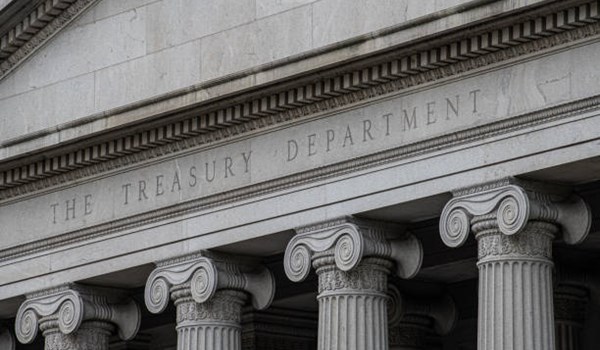Five years after ICIJ’s FinCEN Files investigation exposed the pivotal role the U.S. financial system plays in global dirty money flows, authorities are winding back landmark reforms pushed through in the wake of the revelations, prompting widespread concerns from transparency advocates.
The U.S. Treasury Department’s Financial Crimes Enforcement Network — the namesake of ICIJ and BuzzFeed News’ 2020 investigation — announced last week that it expects to delete ownership information that U.S. companies submitted as part of the launch of the previously celebrated company ownership registry.
At a congressional subcommittee hearing, FinCEN’s director flagged plans to delete the data in a proposed rule expected to be finalized later this year. Once the rule is in place, only foreign businesses with foreign owners will be required to report ownership information to the federal government.
Without beneficial ownership information, investigations are useless.
— Gary Kalman, Executive Director of Transparency International U.S.
Experts told ICIJ that the move further guts the Corporate Transparency Act, a 2021 bipartisan law passed months after the publication of the FinCEN Files aimed at cracking down on anonymous shell companies that facilitate illicit finance. A key part of the legislation was the establishment of the company ownership registry, which was officially launched last year amid ongoing political and legal challenges, and which required companies operating in the U.S. to submit ownership information to the Treasury.
In March, the Treasury Department moved to exempt all U.S. businesses from the requirement, meaning only foreign-owned firms operating in the U.S. would need to comply with the reporting obligations. The potential destruction of data would be “doubling down on Treasury’s unlawful gutting of this statute,” Ian Gary, executive director of the Financial Accountability and Corporate Transparency (FACT) Coalition said.
“The Corporate Transparency Act was a landmark achievement, and what we would call a foundational reform,” said Gary Kalman, Executive Director of Transparency International U.S. “If you only build the foundation, you can’t actually live in the house, right? But if you build a house without a foundation, it’s going to fall apart. Without beneficial ownership information, investigations are useless.”
FinCEN Files, five years later
FinCEN Files, a global investigation by more than 400 journalists published in 2020, drew on a cache of secret financial intelligence reports to reveal how banks moved dirty money for drug cartels, corrupt regimes, arms traffickers and other international criminals — in ways perpetuated by a broken U.S.-led enforcement system.
Five years after publication, Jason Leopold, one of BuzzFeed News’ lead reporters on the project, said he still remembers how the investigation made immediate waves, with bank stocks plummeting and governments calling for investigations.
“It felt like an explosion,” Leopold said. “You felt the veil of secrecy being lifted.”
The documents included more than 2,100 suspicious activity reports, or SARs, filed by global banks to FinCEN that were originally obtained by Leopold from a former U.S. Treasury Department official, Natalie Mayflower Sours Edwards. At the time, BuzzFeed News did not discuss its source. But Edwards was arrested and eventually pleaded guilty to conspiring to unlawfully disclose documents to BuzzFeed News, and served six months in prison.
The documents were shared with ICIJ after one of Leopold’s colleagues, John Templeton, met ICIJ’s Emilia Díaz-Struck at a data journalism conference in 2019 and told her that BuzzFeed News had “something” that might interest ICIJ, Fergus Shiel, ICIJ’s managing editor, recalled.
“We had no idea what the ‘something’ was, but I quickly arranged a virtual meeting of ICIJ and BuzzFeed News reporters and editors to learn more,” Shiel said. “That was when Anthony Cormier [then also of Buzzfeed News] and Jason Leopold first let us in on their secret trove of financial intelligence from global banks.”
Simon Bowers, ICIJ’s European partnership coordinator at the time, still remembers his initial shock at the volume of information.
“When you see it all listed out, you just feel like everyone involved in [filing each SAR] must feel it stinks to high heaven. And then it just goes and sits in a file, in the U.S. Treasury Department,” Bowers said. “It felt like nothing good can be happening with these money flows. You know, that’s what my feeling was in turning almost every page.”
ICIJ, together with BuzzFeed News and 108 other media partners in 88 countries, spent 16 months organizing and analyzing the documents. ICIJ and its partners collected additional leaked documents from sources, reading through voluminous court and archival records and interviewing hundreds of people, including crime fighters and crime victims.
“The thing that we recognized immediately is that ‘oh, this was a global story,’ you know, this wasn’t a U.S. story,” Leopold said. “And we really needed to work with people, other investigative journalists in other countries, because much of the information that we wanted to lay bare, dealt with financial crimes all over the world.”
The investigation was by no means smooth sailing; in the midst of it all, the COVID-19 pandemic broke out.
“I distinctly recall talking with Anthony Cormier one day at the height of the pandemic,” Shiel said. “He was watching from his Queens apartment the last remains of Covid victims being taken away. And I was entirely alone in ICIJ’s once bustling office building.”
Behind the scenes, Leopold was wrestling with the knowledge that his source was being indicted. Several journalists in other countries, he said, were questioned by law enforcement. And there was a “high drama” moment, Bowers recalled, when Treasury released a statement saying it was aware a group of journalists had possession of “unlawfully disclosed” SARS.
“It was certainly a moment where, you know, ICIJ had and the partners had to hold their nerve and sort of be confident in the public interest of what they were doing,” Bowers said.
When ICIJ and its partners finally published their findings across hundreds of stories in September 2020, a bipartisan coalition of advocates seized the public outcry to push long-attempted reforms through U.S. Congress. The passage of the Corporate Transparency Act in January 2021 felt like a huge leap forward.
“It still felt in that era, the march of transparency felt it had an inevitable momentum to it,” Bowers said. “It would all just, you know, fall neatly into place and in good order. But then obviously things changed.”
Impact and the Corporate Transparency Act today
The Corporate Transparency Act initially enjoyed the support of U.S. President Donald Trump, who signed it into law in the final days of his first term.
But the second Trump administration has been marked by rule changes and court challenges that have undermined the landmark reform.
In a March press release, Treasury argued the suspension of enforcing the CTA against domestic companies was “in the interest of supporting hard-working American taxpayers and small businesses.” U.S. Treasury Secretary Scott Bessent in the release called it “a victory for common sense.”
But evidence has shown that U.S. companies are regularly used for illicit means, advocates say. FACT Coalition’s Gary cited FinCEN’s latest financial trends analysis from Aug. 28, which reported Chinese money laundering networks were using domestic shell companies to purchase real estate.
“It’s certainly a contradiction between the stated priorities of this administration,” Gary said. “Law enforcement needs more tools, not fewer, to tackle drug trafficking, human trafficking and other issues that are harming Americans.”
The move to destroy already collected data, Kalman said, is not only potentially illegal but also counterproductive.
“Just pressing a button and deleting 10 or 12 million records with no idea if those records hold potential links to corrupt or criminal activity seems again to undermine your stated interest in shutting down cartels and transnational criminal organizations,” Kalman said.
Rules may change, Kalman said, and he hopes the recent ones will be a “bump in the road.” According to Kalman, investigations like the FinCEN Files have helped people understand why such transparency initiatives are so critical in the fight against dirty money.
“There’s a greater recognition of the ease with which people can move money around the globe, and the need to fortify our financial intelligence units and take these issues much more seriously, because it is the funding that fuels and fortifies these dangerous and illicit networks,” he said.
The FinCEN Files also, importantly, galvanized increased funding and bipartisan congressional support for FinCEN — which at the time of the investigation, Kalman said, was smaller than its equivalent agency in Australia.
“[FinCEN] was massively underfunded and expected to do a job that, given its resources, was simply overmatched,” he said. “In Congress, there’s support for an understanding of the importance, there’s support for FinCEN and understanding its role in following the money and cracking down on these illicit finance operations. That’s huge in a time when we have, you know, some pretty severe polarization.”
The weakening of the Corporate Transparency Act and the reining in of other transparency regulations sends a different message, Leopold said. But the investigation, he said, “stands on its own for what it revealed, in terms of the vast financial crimes and how Western banks dealt with suspicious activity.”
“Our work was powerful,” he said. “There was accountability there, and we showed the harm that resulted.”



